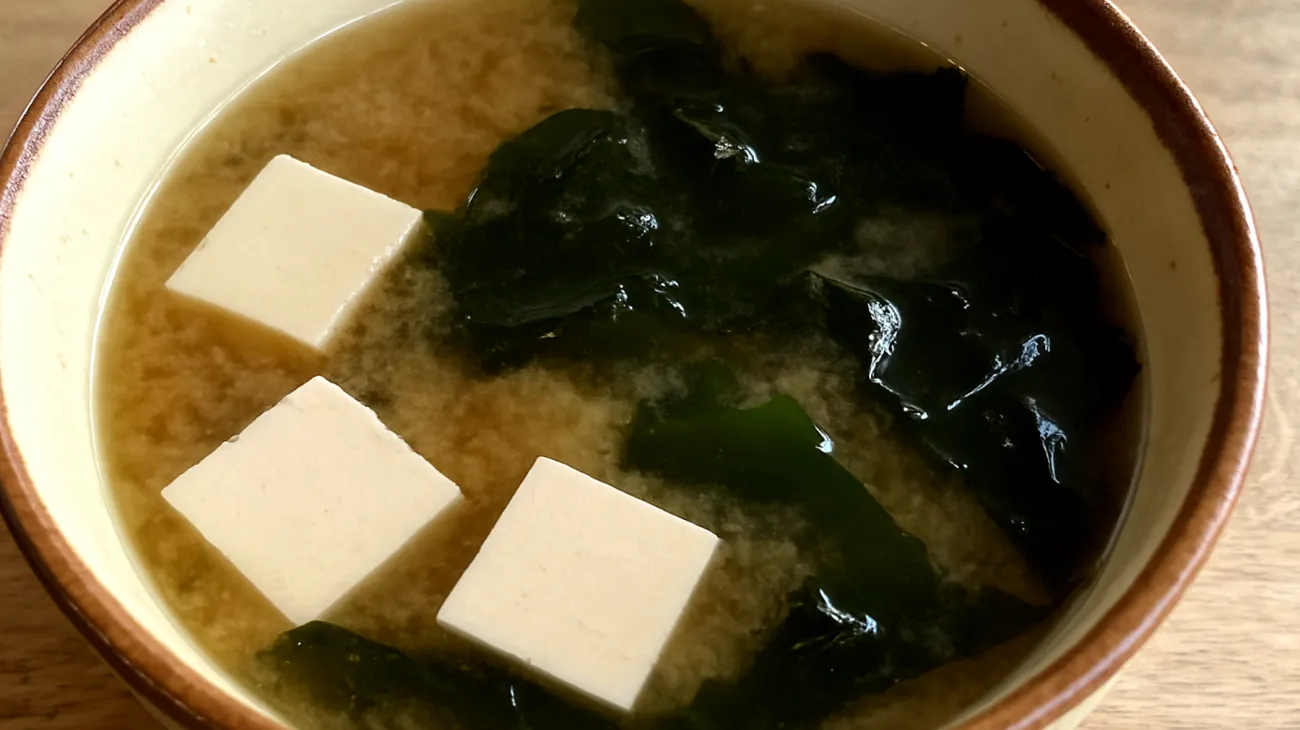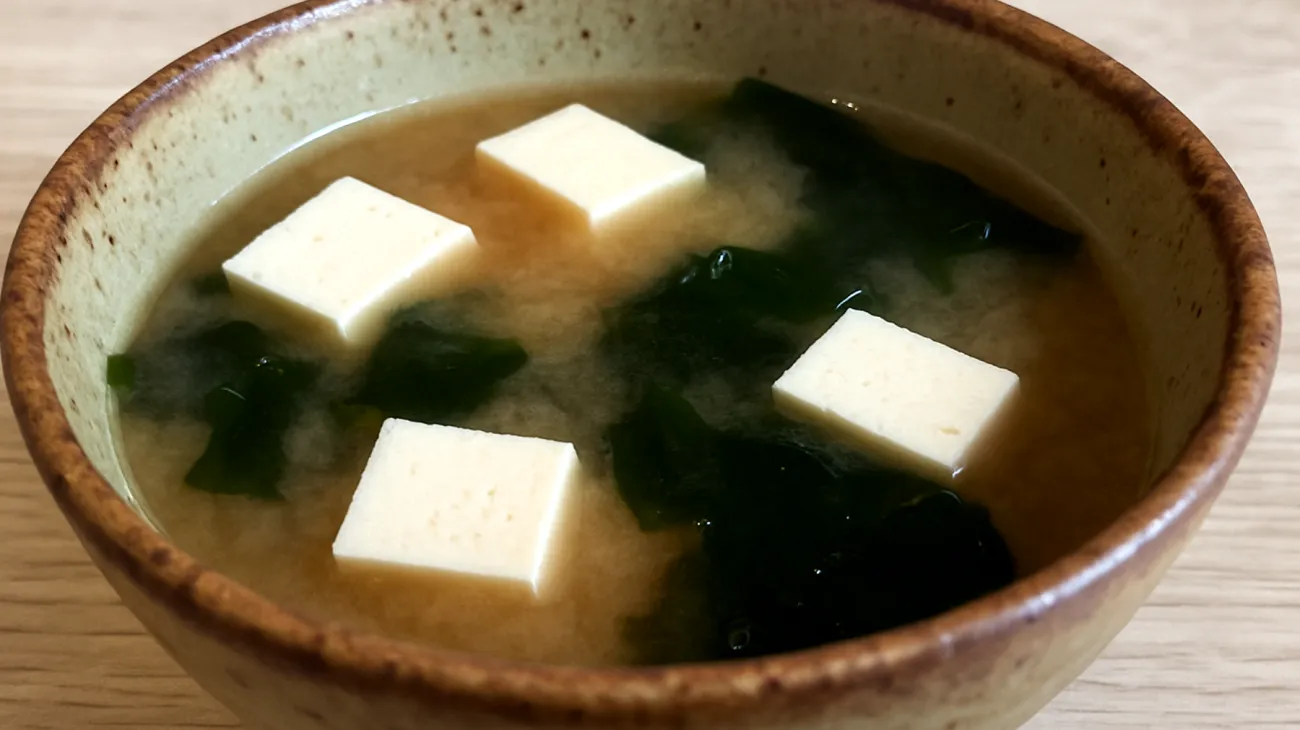After countless hours hunched over textbooks and surviving on instant ramen and coffee, your body sends distress signals that can’t be ignored. The digestive discomfort, mental fog, and persistent fatigue experienced during periods of intense academic stress are commonly reported symptoms among students, directly linked to poor sleep quality and dietary habits. These aren’t just temporary inconveniences—they’re your system’s way of demanding proper nourishment. While your peers might reach for another energy drink, there’s a centuries-old Japanese remedy that registered dietitians are increasingly recommending for academic recovery: miso soup with wakame seaweed and tofu.
The Science Behind Academic Burnout Recovery
When stress hormones such as cortisol remain elevated during exam periods, research demonstrates they can disrupt the gut microbiome, potentially affecting digestive health and immune function. This disruption can lead to poor nutrient absorption, which contributes to deficiencies in vitamins and minerals essential for cognitive performance and mood stability. The body may prioritize immediate energy needs over restoration, a phenomenon well-documented in research on stress response in students.
Registered dietitians emphasize that recovery nutrition isn’t just about calories—it’s about specific nutrients and compounds that support healing from chronic stress. This is where the elegant simplicity of miso soup becomes particularly relevant.
Miso: Your Gut’s Best Academic Ally
Miso is a fermented soybean paste containing various strains of probiotic bacteria, mainly species of Lactobacillus and Tetragenococcus. Scientific studies show that traditional miso contains multiple beneficial strains, comparable to quality yogurt cultures. Fermented foods like miso are recognized for their ability to support healthy gut flora and may help inhibit the growth of harmful bacteria.
What makes miso particularly valuable for stressed students goes beyond basic nutrition. This fermented powerhouse contains naturally occurring vitamin B12 primarily due to fermentation, though amounts are generally low and may not fully meet plant-based diet needs unless specifically fortified. The fermentation process also produces digestive enzymes such as proteases and amylases, which may aid digestion—exactly what your overwhelmed system needs after weeks of surviving on processed foods.
The umami taste from glutamate in miso can reduce cravings for processed foods, while essential amino acids support neurotransmitter production, especially when combined with tofu. Nutritionists recommend choosing organic, low-sodium miso to manage sodium intake, as high salt consumption is linked to increased blood pressure, which may exacerbate anxiety and cardiovascular risks.
The Mineral Powerhouse: Wakame Seaweed
Wakame is a sea vegetable that helps address specific nutritional gaps common in student diets, providing a rich source of minerals including iodine, magnesium, calcium, and iron. After soaking for 5-10 minutes until tender, wakame expands to deliver an impressive mineral profile particularly relevant for stressed students.
The iodine content in wakame supports thyroid function, vital since thyroid hormones regulate metabolism and cognitive function. However, students with existing thyroid disorders such as hyperthyroidism or Hashimoto’s should consult healthcare providers before increasing iodine intake, as excessive amounts can worsen certain thyroid conditions.

Magnesium, another key component of wakame, is essential for muscle and nerve function and has been shown to support stress reduction and sleep quality. Peer-reviewed research indicates a significant proportion of university students have suboptimal magnesium intake, contributing to symptoms like muscle tension, insomnia, and irritability. One serving of about 10g dried wakame, when rehydrated, provides 10-15% of daily magnesium needs in a bioavailable form.
Tofu: Complete Protein for Cognitive Recovery
The silky tofu cubes floating in your soup aren’t just textural elements—they’re delivering complete protein that supplies all nine essential amino acids. This is particularly significant for students who may have been relying on incomplete protein sources like pasta and bread.
Tryptophan, present in tofu, is a precursor to serotonin—a neurotransmitter involved in regulating mood and sleep. Consuming tryptophan-containing foods in the evening supports serotonin and melatonin synthesis, potentially aiding in sleep quality. Complete proteins from tofu also support stable blood sugar levels, which can help reduce cravings for unhealthy late-night snacks that derail your recovery efforts.
Optimal Consumption Strategy for Student Recovery
Timing matters when using food as medicine. Registered dietitians suggest that warm, easily digestible foods like miso soup in the evening can support relaxation and digestion, particularly as the body transitions from sympathetic stress mode to parasympathetic rest and digest states. General nutrition advice supports warm meals in the evening for digestive comfort and better sleep preparation.
- Never boil miso paste directly—heat above 50°C (120°F) can destroy probiotic organisms
- Dissolve miso in a small amount of warm broth, then add to the pot off the heat
- Add tofu and wakame toward the end of cooking to maximize nutrient retention
- A splash of rice vinegar may enhance flavor and potentially improve mineral absorption
Beyond Individual Nutrients: Synergistic Effects
The distinguishing feature of miso soup is synergy—probiotics may increase mineral absorption from wakame and protein utilization from tofu. Recent research reviews suggest that food combinations and dietary patterns often provide superior benefits compared to isolated nutrient supplements, particularly for stress management and immune function.
Students with soy allergies should obviously avoid this particular combination, but the principles remain broadly applicable—fermented foods, sea vegetables, and complete protein sources support recovery from academic stress. Research underscores that optimal nutrition and regular sleep are foundational for academic performance and well-being.
Your academic success depends not just on what you put in your mind, but fundamentally on what you put in your body. Recovery nutrition isn’t a luxury—it’s academic strategy. That warm bowl of miso soup isn’t just comfort food; it’s your secret weapon against the academic grind.
Table of Contents

